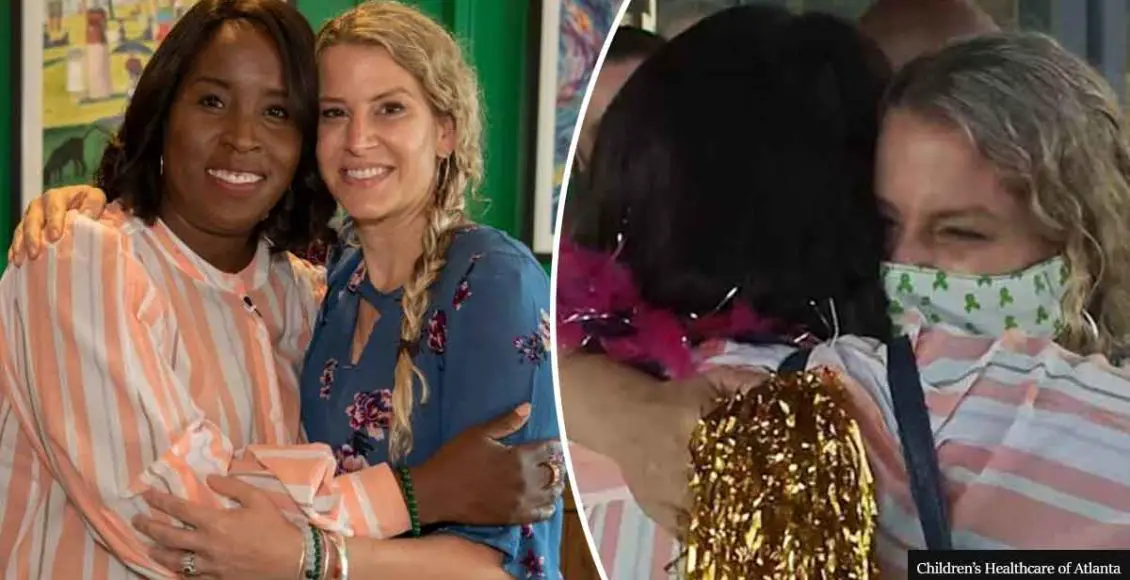Atlanta co-workers donated their kidneys to each others’ husbands saving their lives.
- Both husbands of Tia Wimbush and Susan Ellis, co-workers at an Atlanta hospital, were suffering from kidney disease at the same time.
- After undergoing blood tests, Tia and Susan discovered that their blood types were compatible with their husbands’.
- On March 19, Tia’s husband received a kidney transplant from Susan, while Susan’s husband got his from Tia.
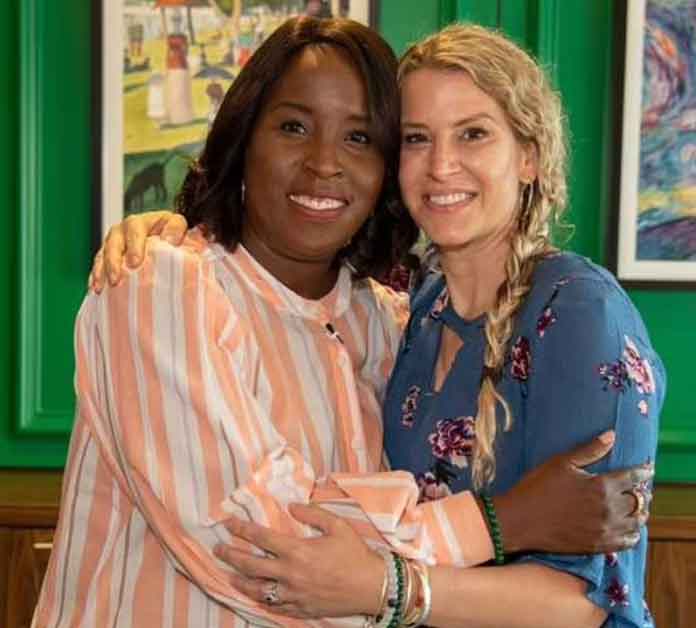
Tia Wimbush and Susan Ellis helped save their partners’ lives by donating their kidneys – Tia donated hers to Susan’s husband, while Susan did the same for Tia’s spouse. The life-saving procedure occurred after they found out their blood types matched, Daily Mail reveals.
The two women worked together in the IT department at Children’s Healthcare of Atlanta for 10 years. Then, in 2019, they shared a tragic fate – both their husbands were suffering from kidney disease at the same time, and they needed transplants to survive.
Last September, as the two colleagues were conversing about their common struggles, Tia asked Susan about her husband Lance’s blood type. As CNN reports, Ellis’s husband is O negative, a rare blood type that’s difficult to match. Thankfully, Wimbush’s blood type, O, was compatible.
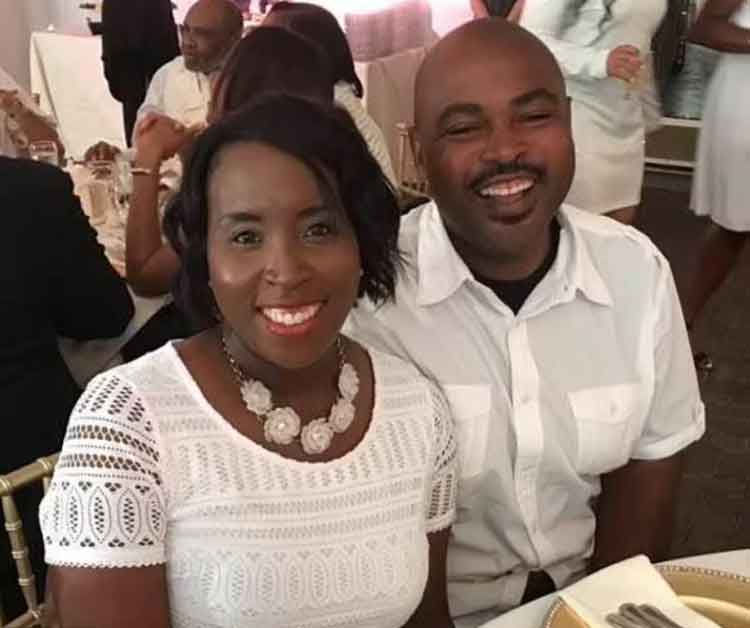
In the meantime, they discovered that Tia’s partner Rodney’s blood type is AB, while Susan’s is type A – also compatible. Wimbush commented:
“All that was going through my head is: ‘What if we can donate our kidneys to each other’s husbands?’ I could have never imagined it.”
In six months, Lance and Rodney got a new chance at life after all four friends underwent surgeries.
Lance’s battle with kidney disease began back in 2010. Seven years later, he received a transplant from his mother but suffered severe complications afterward. Unfortunately, in August 2019, he was sent back into renal failure.
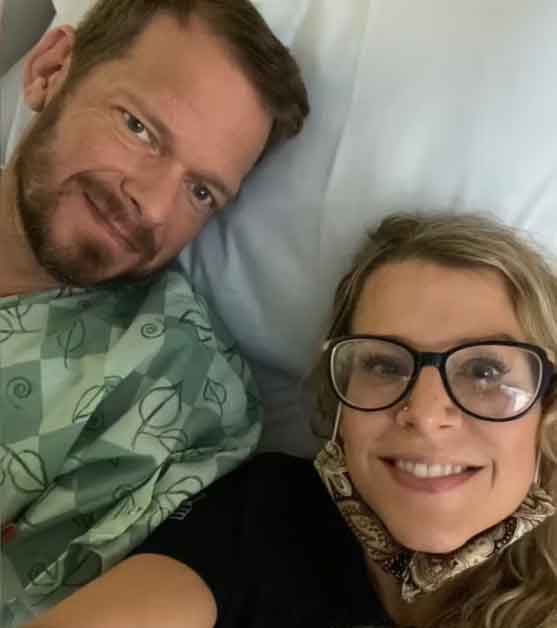
Meanwhile, only a few days before Lance learned he needed another transplant, Rodney was diagnosed with kidney disease. He was hospitalized after his blood pressure went critically high. His wife recalled:
“Within an hour of running tests, they started saying things like: ‘Has anyone ever mentioned kidney failure to you?’ And we were like: ‘What’s happening? What are you talking about? What does this mean for us?’ It was extremely emotional.”
Before being put on the transplant list, both Rodney and Lance began undergoing regular dialysis.
However, as the average wait time for the list is at least five years, as per the American Kidney Fund, Tia and Susan worried their husbands might not live long enough to reach the top.
Wimbush explained:
“There was always the fear of the unknown, the fear of the worst-case scenario that’s looming. We just never knew what could happen in just a single moment.”
After the symbolic talk Tia and Susan had while working, they decided to undergo blood type and antibody tests to see if they are indeed compatible with their husbands.
On March 19 this year, at Piedmont Atlanta Hospital, Tia gave her kidney to Lance, while Susan gave hers to Rodney.
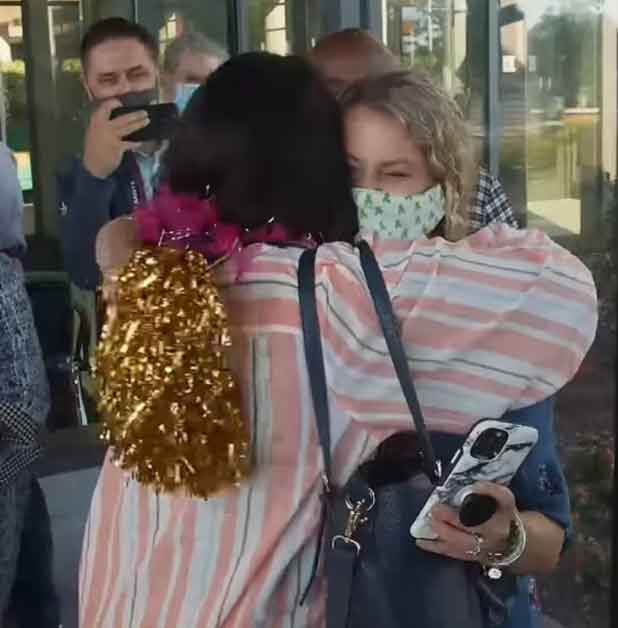
Naturally, after this fateful day, they were all more than friends – they became a family. Tia said:
“It’s beyond friendship. We all took a leap of faith in doing this and now we are forever connected, always rooting each other on in both the recovery process and in this second chance of life.
I’m forever changed. I’m hopeful for humanity and I hope other people will take that away from this story. You can be somebody else’s hope, it could be you to show someone a glimpse of what humanity really means.”
Lance added:
“The Wimbushes are our family and are the best people we have ever met. We are looking forward to spending time together and making new healthy memories.”
Christina Klein, a transplant nephrologist at Piedmont, commented:
“It is very rare for two immunologically incompatible pairs to propose their own paired exchange and actually be a match for one another. I have been a transplant nephrologist since 2008 working in active living donation and paired kidney exchange programs, and I have personally never seen this happen before.”


